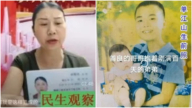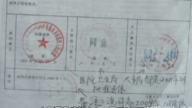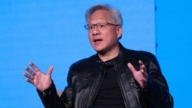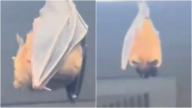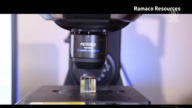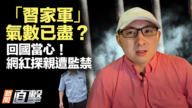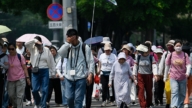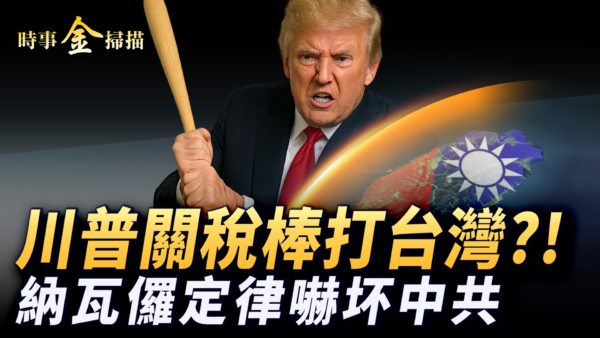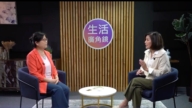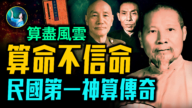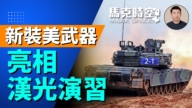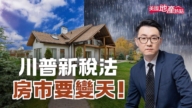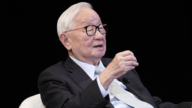【新唐人2014年06月12日讯】日前,中共国务院前总理朱镕基的儿子朱云来,在论坛上炮轰现行医疗体制,他表示,“看病难”是体制问题,不是医生不够。有分析指出,朱云来向来行事低调,这次发言炮轰,是替父亲在当前中共高层权斗中使一把劲,藉医改政策缺失,追究前党魁江泽民的责任。
6月8号,朱云来出席北京“清华大学”举办的“未来三十年——海归使命论坛”,并就医保主题发表谈话。他援引中共卫生部的调查数据说,中国的医疗费总量近3万亿,但医生平均每天只看7.2个病人。中国近一半居民,有病不就医,29.6%的居民,应该住院而不住院。
朱云来指出,中国民众“看病难,看病贵”并不是医生少、或医疗资源不够,“最主要的还是体制问题”。他说,“看病难”主要是难在“结构性失衡”,医疗资源过分集中在大城市、大医院,而整个系统对医生也缺乏激励机制,造成医生不愿多看病﹔“看病贵”则是贵在药品和医疗机械生产流通秩序混乱,使医院的“追逐利益倾向”愈演愈烈,导致医患矛盾突出。
朱云来还说,看病的钱,有一半花在药品上,如果药价下降50%,甚至90%,整个医疗费用就下来了。
朱云来过去一直保持低调,面对媒体,大多“沉默”以对,他这一番言论格外引人注目。
旅美中国问题评论人士李善鉴:“现在中共高层两派角杀的比较厉害,他在这个时候有意的露面,一个目地是澄清一些问题,另外一个可能性,他是朱镕基的儿子,可能要通过这种方式,在两派的争斗里边使一把劲。讲体制的问题,他用医改的做法,说有很大问题,前面的政策的执政者,江和他的整个势力要负的责任,也有这个目地。”
据了解,中共“十八大”期间,一直低调的朱镕基曾一度露面,会见“清华大学经管学院”顾问委员会的中外委员,当时参加会见的还包括现任中共中纪委书记王岐山。
有媒体披露,早在90年代初,朱、王两人就关系密切。朱镕基曾经主导的金融改革期间,王岐山是朱镕基的得力助手。作为朱镕基的“衣钵传人”,王岐山获得朱镕基力挺。
朱镕基的女儿朱燕来也曾透露,朱镕基对新一代领导人习近平和王岐山领导的反腐十分肯定,认为方向是对的,但如何更有效,有待进一步广泛探讨。
旅美政论家伍凡:“代表他父亲的意思,对共产党的派系斗争有一个声音出来,就好像过去温家宝搞政治改革,就出来的声音。共产党现在这种状态,它能改革吗?不抱幻想,温家宝喊了5年了,要搞政治改革,在中国、外国,都在喊,没人理他。”
据了解,今年中共“两会”期间,人大代表钟南山也曾对“医患纠纷”提出看法,他认为,现行医疗体制将市场化的经济效益作为追求目标,导致对生命价值的漠视。而现行医疗体制也无法体现医生的劳动价值,医生被迫靠“卖药”提高收入。
钟南山指出,医疗改革这么多年,看病贵、看病难、医患关系、医护人员积极性等问题,没有得到解决,他说:“这绝对不是一般的问题,是体制上的问题”。
事实上,中共也承认医改失败。2005年,中共国务院发展研究中心发布《医疗卫生体制改革的报告》,报告说,医疗改革总体讲是不成功的,根源在于“商业化、市场化的走向违背了医疗卫生事业的基本规律”。
时事评论员杨宁在博客文章中指出,普通民众看病难,看病贵的社会现状已延续几十年。名义上用于全民医保、完善公共卫生服务、解决民众“看病难、看病贵”的医疗经费,绝大部分被用于中共权贵阶层及其裙带关系上。
采访/陈汉 编辑/陈洁 后制/陈建铭
Former Premier´s Son Criticizes China´s Healthcare System
In a recent forum, Zhu Yunlai, son of former Premier
Zhu Rongji, criticized China´s current healthcare system.
He says that the system has caused citizens difficulty
in accessing healthcare, not a lack of doctors.
Analysts observe that Zhu Yunlai has always kept
a low-profile and his criticism was meant to reinforce
his father´s power during the current
Chinese Communist Party (CCP) infighting.
He is using the failed medical reform issue as a way
to hold Jiang Zemin, former head of the CCP, responsible.
On June 8, Zhu Yunlai attended a seminar at Beijing´s
Tsinghua University, where he spoke about healthcare.
He cited Ministry of Health survey data in which
medical expenses have reached nearly 3 trillion yuan,
while doctors only see an average of 7.2 patients per day.
Almost 50 percent of Chinese people can´t have medical
treatment, while 29.6 percent of patients should stay
in the hospital but they don´t.
Zhu Yunlai said the cause of people´s difficulty in seeing
a doctor and the related expenses is not due to an insufficient amount of doctors or lack of medical resources.
The main reason lies in a problematic medical system.
He said that difficulty in seeing a doctor is caused by
a structural imbalance as well as an over-concentration of medical resources in large cities and hospitals.
The entire system lacks doctor incentives,
thus physicians are unwilling to see more patients.
Chaotic distribution of medicine and equipment
has driven up the cost of doctor visits,
and the self-interest of hospitals has intensified,
causing doctor-patient conflicts.
Zhu Yunlai also said that patients spend 50 percent
of medical fees on medicines, and if the cost of medicine
were reduced by 50 to 90 percent, people´s medical expenses
will drop.
Zhu has always kept a low public profile and has kept silent
when facing media.
Thus, his remarks are particularly noticeable.
Li Shanjian, US-based China affairs commentator: “Now
high-level infighting of two CCP factions has intensified.
Two reasons Zhu Yunlai chose this moment to make
a public appearance are to highlight some issues,
and, as Zhu Rongji´s son, he might be using
his influence in the infighting.
Regarding the system problems, he mentioned the issue
of medical reform and said that large problems exist.
The former head of the CCP, Jiang Zemin and
his entire faction, must take responsibility.”
Sources say that Zhu Rongji kept low public profile during
the CCP´s 18th National Congress, where he met
with advisory board members of Tsinghua University
School of Economics and Management.
Wang Qishan, Secretary of the Central Commission for
Discipline Inspection also attended the meeting.
Media revealed that in the early 1990s,
Zhu Rongji and Wang had close ties.
During Zhu´s financial reforms, Wang was Zhu´s assistant.
As Zhu´s successor, Wang received Zhu´s utmost support.
Zhu Rongji´s daughter Zhu Yanlai reportedly revealed
that Zhu was very supportive of Xi Jinping and Wang Qishan´s anti-corruption campaign.
Zhu believes it is a correct direction.
However, further research is needed for its effectiveness.
Wu Fan, US-based political commentator: “Zhu Yunlai
spoke out on behalf of his father.
It seems like in the past when Wen Jiabao launched
a political reform, some voices spoke out.
Regarding the CCP´s current situation, do you think
reforms will be implemented?
Don’t place hope in the CCP.
Wen Jiabao has talked about political reform for five years,
people have also called for political reform at home and abroad but were ignored.”
Sources say that during the CCP´s Two Meetings this year,
Zhong Nanshan, a representative of the National People´s
Conference, also raised his opinion regarding
the contradiction between doctors and patients.
Zhong said that the current healthcare system disregards
the value of life in pursuit of economic interests.
In addition, under the current healthcare system there is no
way to reflect the value of work, thus doctors feel forced to push pills to drive revenue.
many years ago, but costly doctor visits, difficult treatment,
doctor-patient relations and medical staff incentive issues
have gone unresolved.
The CCP also admitted to healthcare reform failure.
In 2005, the state council issued a report
about healthcare reform.
The report states that the healthcare system is unsuccessful
due to commercialization and market-oriented trend
which runs contrary to the basic principles
of the healthcare industry.”
On his blog current affairs commentator Yan Ning wrote
that the social phenomenon of ordinary people´s
difficult and expensive medical treatment
has lasted a few decades.
Universal coverage, improvement of public services,
resolving the problems of treatment and doctor visit expenses are only surface issues.
The vast majority of these funds have been spent
on nepotism by the CCP´s privileged class.
Interview/ChenHan Edit/ChenJie Post-Production/Chen JianMing


